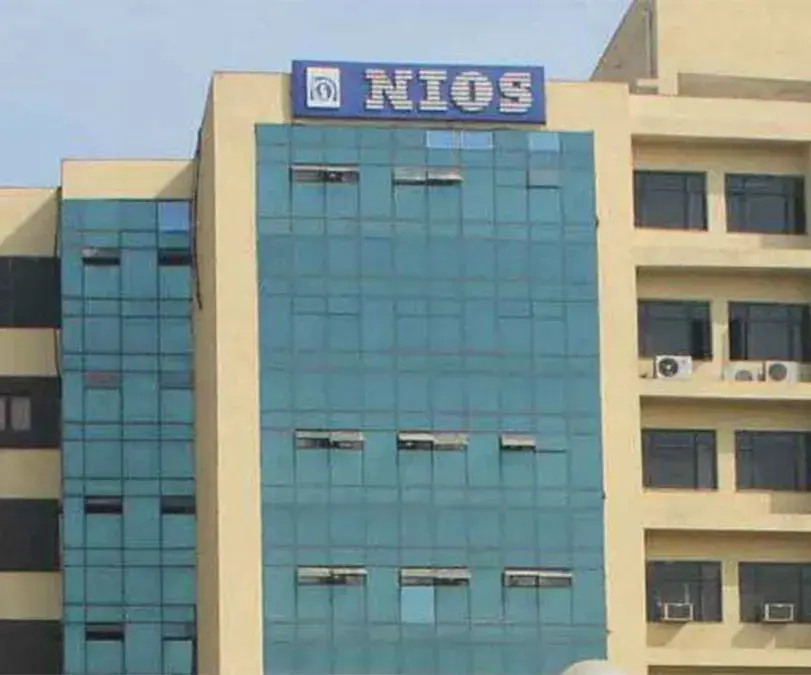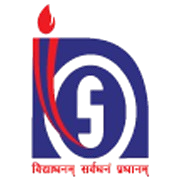
National Institute Of Open Schooling Accademic
- Affordable fee structure
- Government-recognized
- Wide course selection
- Study centers nationwide
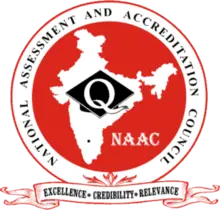
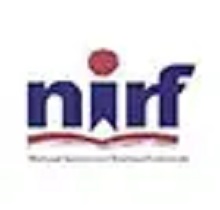
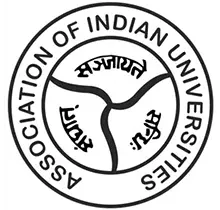
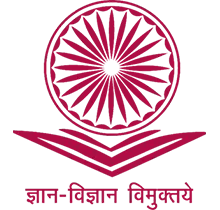
About
One may argue that the two most significant NIOS departments are the Academic Department
and the Vocational Education Department.
These two departments create courses and/or educational programs to allow students to pursue the learning path of their choice. To create useful and need-based courses that will help the students, the two departments work together.
Academic courses, which cover the whole school education spectrum from primary to predegree
level, are handled by the Academic Department.
Along with research and development operations, the Academic Department develops curricula and self-study materials, modifies existing learning materials, and offers assistance with student evaluation.
The following units are part of the NIOS Academic Department.
-
Open Basic Education (OBE)
-
Secondary and Senior Secondary Education
-
Capacity Building Cell
-
NCOS Secretariat
-
COMOSA Secretariat
-
Graphic Unit
-
Library and Documentation Services
Who Can Apply
-
Open Basic Education (OBE) – Aimed at individuals aged 14+, this includes three levels (A, B, C), equivalent to classes III, V, and VIII in the formal system
-
Secondary Education Course – Equivalent to Class X
-
Senior Secondary Education Course – Equivalent to Class XII
-
Life Enrichment Programmes – Various programs aimed at enhancing life skills
-
D.El.Ed. Programme – Teacher education diploma for training untrained elementary teachers per RTE Act 2009
-
Secondary and Senior Secondary Course for ITI Students – Tailored academic
courses for ITI holders -
Indian Sign Language (ISL) as a subject at Secondary Level – Enhancing inclusive education, ISL has been offered since 2021
Specialization / Course Fees
Here’s a detailed breakdown of NIOS (National Institute of Open Schooling) course fees,
covering both admission (registration) fees and exam-related charges:
1. Admission / Registration Fees (Includes registration, study materials, identity card, PCPs)
According to the official NIOS site, as of 2025:
1. Secondary Course (Class X Equivalent):
- General (Male): ₹2,340 for 5 subjects
- Female / Third Gender: ₹1,890 for 5 subjects
- SC/ST / Ex-Servicemen / PwD: ₹1,560 for 5 subjects
- Additional Subject: ₹940 per subject
2. Senior Secondary Course (Class XII Equivalent):
- General (Male): ₹2,600 for 5 subjects
- Female / Third Gender: ₹2,150 for 5 subjects
- SC/ST / Ex-Servicemen / PwD: ₹1,690 for 5 subjects
- Additional Subject: ₹940 per subject
2. Examination Fees (Payable separately per subject, for theory and practicals)
From the NIOS evaluation section:
- Theory exam: ₹300 per subject
- Practical (for combined theory + practical subjects): ₹150 per subject
- Late fee: ₹150 per subject (if exam fees are paid after deadline)
- Consolidated late fee (for processing at regional centers): ₹1,600
- These are the official examination charges payable per exam session.
3. Miscellaneous Fees
Additional services and document-related charges include — per item:
- Duplicate Certificates (e.g., Migration Certificate, Marksheet): ₹300
- Re-evaluation Processing (Senior Secondary):
- Public Exam: ₹1,000 per subject
- On-Demand Exam: ₹1,200 per subject
- Document Verification (for private companies/individuals): ₹650 per candidate
4. Summary Table
Fee Type Secondary (Class X) Senior Secondary (Class XII)
- Admission (5 subjects) – General (Male) ₹2,340 ₹2,600
- Admission – Female/3rd Gender ₹1,890 ₹2,150
- Admission – SC/ST / PwD / Ex-Servicemen ₹1,560 ₹1,690
- Additional Subject ₹940 per subject ₹940 per subject
- Theory Exam Fee ₹300 per subject ₹300 per subject
- Practical Exam Fee (if applicable) ₹150 per subject ₹150 per subject
- Exam Late Fee ₹150 per subject ₹150 per subject
- Consolidated Late Fee (Regional Centers) ₹1,600 ₹1,600
Duplicate Certificates ₹300 each ₹300 each
Re-evaluation (Public Exam) — ₹1,000 per subject
Re-evaluation (On-Demand Exam) — ₹1,200 per subject
Document Verification (for employers) ₹650 per candidate ₹650 per candidate
5. Real-World Insights & Cautions
Student discussions on Reddit offer practical experiences:
- Beware of scams and inflated fees: One student shared:
“If you are taking Public Examinations… by ALSO giving practicals, then total fee
would be less than 5000- max” - They emphasized doing admission through the official website and avoiding external
agencies charging ₹8,000–₹9,000. - Some centers charge exorbitant rates: A student noted an organization quoting
₹13,000, flagging it as a strong red flag.
Those experiences reflect the legitimacy of official fees and the importance of avoiding
unauthorized agents.
Summary & Tips
- Admission fees vary by course level and category (range: ₹1,560–₹2,600 for 5 subjects).
- Exam fees are paid separately per subject (₹300 theory + ₹150 for practical, if applicable), plus potential late fees.
- Avoid paying through external centers that overcharge; use the official NIOS portal only.
- Miscellaneous/document charges are reasonably nominal and clearly listed.
Admission Process
1. Admission Sessions
- Block I (April–May Public Exams): Admission open March–September (previous year).
- Block II (October–November Public Exams): Admission open September–March.
NIOS also conducts On-Demand Exams (ODES) round the year for flexibility.
2. Steps for Online Admission
Visit Official Website:
- https://sdmis.nios.ac.in
- Select Admission Type:
- Secondary, Senior Secondary, Vocational, or OBE.
3. Fill Online Registration Form:
- Enter personal details (name, DOB, gender, address).
- Select subjects and study center (AI – Accredited Institution).
4. Upload Documents (Scanned Copies):
- Passport-size photograph & signature
- Age proof (Birth Certificate / Aadhaar / Passport)
- Previous class mark sheet (Class 8 for Secondary, Class 10 for Senior Secondary)
- Address proof (Aadhaar, Voter ID, etc.)
- Category certificate (SC/ST/PwD/Ex-Servicemen, if applicable)
5. Pay Fees Online:
- Debit/Credit Card / Net Banking / UPI.
6. Confirmation:
- After payment, a Reference Number and Enrollment Number is generated.
- Download the Acknowledgment Receipt.
3. Choice of Subjects
- Secondary: Minimum 5 subjects (max 7).
- Senior Secondary: Minimum 5 subjects (max 7).
- Flexibility to choose from academic and vocational subjects.
4. Admission Status & ID Card
After successful verification, NIOS issues:
- Enrollment Number
- Identity Card
- Study Materials (printed or online via NIOS D.El.Ed App / Swayam)
5. PCP (Personal Contact Programmes)
- Optional classes at study centers (AI).
- Scheduled for doubt clearance and practical sessions.
Key Points
✔ No upper age limit for admission.
✔ Entire process is online – do not go through agents or unauthorized centers (they often overcharge).
✔ You can track admission status at sdmis.nios.ac.in using your enrollment details.
Syllabus / Curriculum
At NIOS there are many course programmes being taught.Therefore each course programme the course curriculum is different and for more details visit the official
website of NIOS.
Frequently Asked Questions (FAQ)
1. What is NIOS?
The National Institute of Open Schooling, or NIOS, is an independent agency under the Indian government & Ministry of Education. Through open and distance learning, it offers flexible learning opportunities for vocational, life enrichment, senior secondary (Class 12), and secondary (Class 10) programs.
2. Does the government recognize NIOS as a board?
Indeed. The Indian government recognizes NIOS as being on par with the CBSE and ICSE boards. Higher education, competitive exams (JEE, NEET, UPSC), and government employment all accept NIOS certifications.
3. Who is eligible to enroll in NIOS?
Anyone who is a working professional, dropped out of school, wants to finish their education at any age (there is no enrollment age limit), or need flexible study in addition to other obligations.
4. Which courses are available at NIOS?
Class 10 Secondary Course; Class 12 Senior Secondary Course
• Open Basic Education • Vocational Courses • Programs for Life Enrichment and Skill Development
5. How can I apply to be admitted to NIOS?
Online admissions are available at nios.ac.in, the official NIOS website.
Actions to take: Register online, upload papers, pay the cost, and choose a study facility and subjects.
6. What is the cycle of admission?
Every year, NIOS offers two entrance blocks:
• Exams in April and May (Admission: April–September) • Block 1
• Exams in October and November (Admission: October–March) in Block 2
7. How are NIOS tests administered?
• There are two examination periods per year: April–May and October–November.
• Exams are administered offline at approved locations; eligible students can also take the On- Demand Examination (ODE).
8. What are the NIOS passing requirements?
• A minimum of 33% in each topic (combined theory and practical)
• You need to pass at least five topics in order to be in Class 12.
9. Can I take the JEE, NEET, UPSC, or other competitive examinations using NIOS?
Indeed. All national-level competitive exams, including JEE, NEET, UPSC, NDA, CAT, and CLAT, as well as entrance to Indian and international universities, accept NIOS diplomas.
10. Does NIOS offer study guides?
Indeed, NIOS offers the following:
• Printed study guides
• Video and audio instruction
• Internet-based materials
• Study centers' Personal Contact Program (PCP) classes
11. Can I switch subjects once I've been admitted?
Yes, you can switch topics within a certain amount of time and for a price.
12. Can I show up early for my exams?
Indeed. After fulfilling the minimal study requirements, qualified students can take tests at any time of the year using the On-Demand Examination System (ODES).
13. What distinguishes NIOS from conventional boards like CBSE?
There is no distinction in recognition. The primary distinction is:
• CBSE/ICSE is regular schooling (classroom-based learning); NIO is open schooling (self-paced, flexible).
14. Can students from NIOS enroll in ordinary colleges?
Indeed. The following institutions accept NIOS certificates: Regular degree colleges
Professional education; government and private employment
15. Is it better to prepare for JEE/NEET using NIOS?
Indeed. Many students use NIOS because: • It reduces academic strain in comparison to normalboards; • It offers flexibility in scheduling; and • It saves time for preparing for competitive exams.
Why should you choose VidyaLive
Reputation of Excellence:
VidyaLive is adhere to the High academic standards and dedicated to provide quality education to students. Our educational programs are highly recognized and valuable for candidates.
Updated Industry-Focused Curriculum:
The curriculum of our online programs are up to dated as per industry guidelines. It equips your skills and makes you a valuable asset for a modern and competitive industry.
Affordable Fee Structure:
Get admission to highly recognized online degrees via VidyaLive. We set an affordable fee structure to make education accessible and affordable for students.
Recognized Degrees:
Anybody who wants to get recognized degrees to enhance their career opportunities and growth can easily get admission to our online degrees.
Flexible and Convenient Learning:
By enroll in online courses, you can easily balance your personal and professional commitments. Our online courses do not disturb your current schedule and give you the flexibility to pursue studies at own convenience.
Placement Assistance:
VidyaLive shapes your career by recommend you best universities for online degrees. Not only that, but we also provide you with dedicated placement services to boost your skill set.

